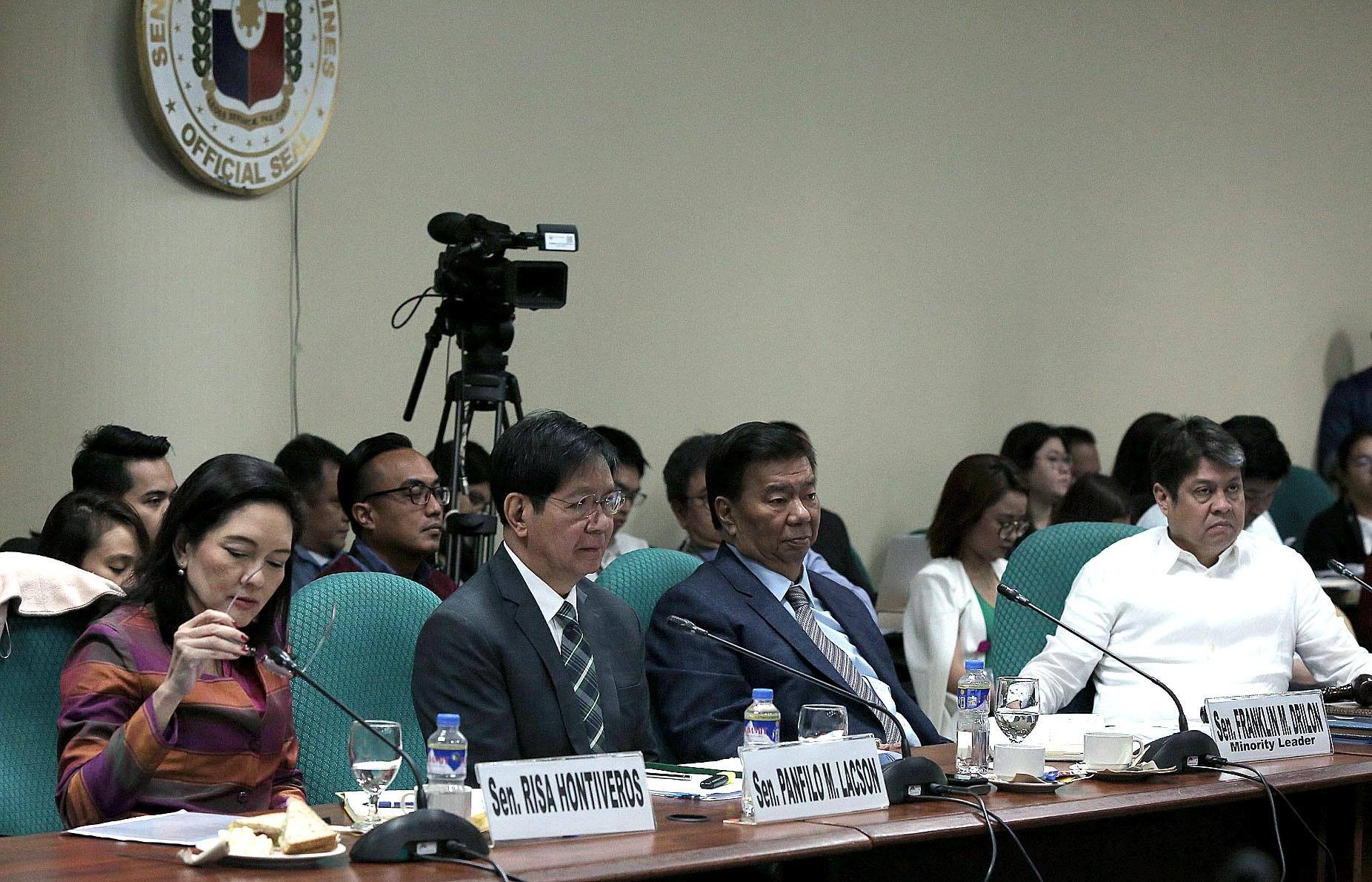SUMMARY
This is AI generated summarization, which may have errors. For context, always refer to the full article.

Senator Panfilo Lacson threw not-so-subtle shade at his colleagues in the House of Representatives on Wednesday, January 17, as a Senate committee tackled proposals to revise the 1987 Constitution.
“With the elevated level of discourse happening in today’s Senate committee hearing on Charter change, I can’t help but say, I’m proud to be a member of this Senate,” said the senator, a member of the majority, in a tweet.
“Thanks to our learned and experienced resource persons, especially [ex-Chief Justice Reynato] Puno,” he added.
With the elevated level of discourse happening in today’s Senate committee hearing on Charter change, I can’t help but say, I’m proud to be a member of this Senate. Thanks to our learned and experienced resource persons, especially Ex CJ Rey Puno.
— PING LACSON (@iampinglacson) January 17, 2018
Lacson has filed a resolution calling for the Senate to convene itself as a Constituent Assembly.
The Senate resumed deliberations on the proposed Charter Change, addressing basic questions such as if it was necessary to revise or amend the Constitution in the first place, and which method would be best if the plan pushed through.
During the hearing, several legal luminaries, including those who framed the 1987 Constitution, explained why they thought it was necessary or unecessary to amend the Constitution or shift to a federal form of government.
In contrast, the House of Representatives on January 16 approved a resolution calling for Congress to convene as a Constituent Assembly, one of the 3 methods to amend the Constitution. House opposition members criticized the supermajority-dominated lower chaber for supposedly “railroading” the process.
Lacson wasn’t the only official to criticize the House of Representatives, composed more more than 290 district and sectoral representatives.
Former Chief Justice Hilario Davide, one of the framers of the 1987 Constitution, insisted that there was no need to revise the charter. But said they if this pushed through, as if it was done via Constituent Assembly, voting should be separate.
This was the only way, he said, to prevent the “bullet train” in the House of Representatives. “I don’t think with that composition in the lower House now, it would be an objective deliberation. We could even say that it’s a done deal in the House,” he said.
No less than House Speaker Pantaleon Alvarez has set a timeline that many consider impossible to stick to: he wants the Constituent Assembly to convene by January 2018 and a plebescite held months later in May the same year.
Alvarez has also criticized the Senate for supposedly being “slow” in doing its job. Senate President Aquilino Pimentel III, Alvarez’ party mate, defended the Senate, saying it was a “critical chamber.”
The Constituent Assembly is composed of sitting members of the House and Senate, convening specifically to discuss possible amendments in the Constitution. Senators have already decided “unanimously” to reject proposals for joint voting, pointing out that this essentially renders the upper chamber powerless. – Rappler.com
Add a comment
How does this make you feel?
There are no comments yet. Add your comment to start the conversation.